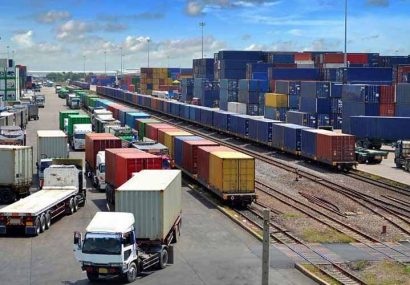Iran’s Foreign Trade Development Hinges on FATF Membership
TEHRAN (Iran News) Speaking to IRNA, Lahouti acknowledged the adverse effects of sanctions on Iran’s economy and foreign trade but highlighted that being on the FATF blacklist poses a more significant challenge. “While sanctions are detrimental, the bigger issue is Iran’s placement on the FATF blacklist,” he said.
He expressed hope that the 14th government would swiftly address the hurdles preventing Iran’s membership in the FATF. “Without resolving this issue, we risk losing trade partners like Russia and China,” Lahouti warned.
Lahouti explained that Russia and China have extensive trade relations with Europe and the U.S. and are unlikely to engage in financial and banking transactions with Iran due to FATF concerns. “Failing to address this will result in the loss of these crucial markets,” he cautioned.
The confederation president also noted the direct impact of FATF on trade agreements. “Without resolving the FATF issue, no one will be willing to engage in financial or commercial interactions with Iranians. We will be forced to resort to outdated methods, such as circumventing sanctions and relying on rial-based transactions, which increase trade costs and diminish competitiveness in global markets,” he explained.
Lahouti stressed that addressing financial and banking challenges and adhering to international agreements could open new export markets. Conversely, he warned that continuing the current situation would harm Iran’s trade balance.
He also underscored that resolving the FATF issue is more critical than lifting sanctions. “Some countries are interested in collaborating with Iran, but our lack of FATF membership creates an obstacle. Global banking networks are essential for these interactions,” Lahouti added.
In recent developments, Iranian Minister of Economic Affairs and Finance Abdolnasser Hemmati announced on January 1 that Supreme Leader Ayatollah Khamenei had approved a renewed review of the bills related to FATF membership by the Expediency Discernment Council. Hemmati said, “I heard from the President that the Supreme Leader has agreed to the reconsideration of the Palermo and CFT bills.”
These twin bills were approved by the 10th Iranian Parliament but faced objections from the Guardian Council. They were referred to the Expediency Discernment Council for further review in 2020. However, no final decision was reached, leaving the bills in limbo.
Iranian President Masoud Pezeshkian, who has prioritized facilitating international financial and trade exchanges, stated in a September press conference that his administration would formally request Parliament to revisit the FATF-related bills.
Subsequently, on October 3, Deputy Executive and Acting Chief of Staff of the Presidential Office Mohammad Jafar Qaem Panah confirmed that the government had submitted a request for the Expediency Discernment Council to reexamine FATF membership. He expressed optimism for achieving domestic consensus on the issue.
Government spokesperson Fatemeh Mohajerani also reported in October that coordination efforts between the government and the council to revisit the FATF issue had commenced.
The Financial Action Task Force (FATF) is an intergovernmental body established in 1989 by the G7 to develop and promote policies to combat financial crimes, including money laundering and terrorist financing. Headquartered in Paris, FATF sets international standards aimed at protecting the global financial system.
Most FATF members are developed countries from Europe and North America. Membership requires adherence to internationally accepted financial standards and a commitment to implementing FATF recommendations. Countries failing to comply are placed on the FATF’s blacklist or greylist, signaling financial risks and isolating them from the global banking system.
Countries in the FATF blacklist face severe repercussions, including restricted access to international banking, reduced trade opportunities, and potential economic sanctions from institutions like the International Monetary Fund and the World Bank.
Iran’s placement on the FATF blacklist significantly hampers its ability to integrate with the global banking system and engage in international trade. Without addressing FATF requirements, Iran risks further economic isolation, jeopardizing its trade relationships and diminishing its prospects for economic recovery.
The Iranian government’s renewed focus on FATF membership reflects its recognition of the critical role this issue plays in shaping the country’s economic future. Resolving the FATF impasse could pave the way for expanded trade opportunities and greater economic stability.
- source : IRAN NEWS ECONOMIC DESK






























